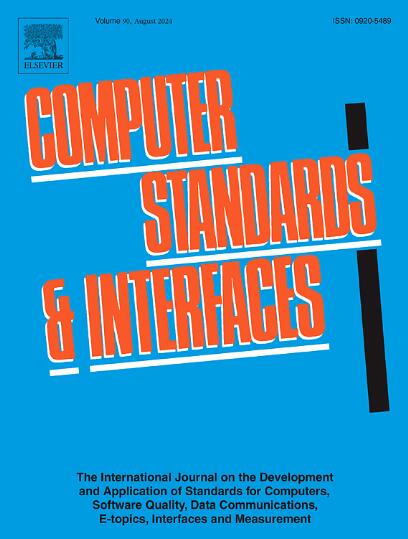HealthDID: An efficient and authorizable multi-party privacy-preserving EMR sharing system based on DID
IF 3.1
2区 计算机科学
Q1 COMPUTER SCIENCE, HARDWARE & ARCHITECTURE
引用次数: 0
Abstract
Electronic medical record (EMR) sharing is widely acknowledged as a crucial approach for enhancing healthcare quality. However, existing EMR sharing systems face some privacy issues when implementing authorization and supervision, leading to the widespread formation of medical data islands. To address these issues, we constructed HealthDID, an efficient and authorizable system for multi-party privacy-preserving EMR sharing. Specifically, we first proposed a global identity management method based on Decentralized Identifier (DID) to address the issues of identity unification and authentication in cross-institutional EMR sharing. Then, we proposed a novel authorization method that enabled verification of the authorization proofs without revealing the patients’ identities. Moreover, we proposed a supervised signature method to meet the diverse privacy requirements of doctors while allowing the supervisor to recover the true identities of those suspected. Finally, we utilized Private Set Intersection with Payload (PSI-Payload) technology to support large-scale batch retrieval of EMR. Formal security proofs prove that HealthDID can achieve specified security goals. Theoretical analysis and experimental results show that our system is more efficient than other related works, with lower running time and reasonable communication costs.
HealthDID:基于DID的高效且可授权的多方隐私保护EMR共享系统
电子病历(EMR)共享被广泛认为是提高医疗质量的重要途径。然而,现有的EMR共享系统在实施授权和监管时面临一些隐私问题,导致医疗数据孤岛的普遍形成。为了解决这些问题,我们构建了HealthDID,一个高效且可授权的多方隐私保护EMR共享系统。具体而言,我们首先提出了一种基于去中心化标识符(DID)的全局身份管理方法,以解决跨机构EMR共享中的身份统一和认证问题。然后,我们提出了一种新的授权方法,可以在不泄露患者身份的情况下验证授权证明。此外,我们提出了一种监督签名方法,在满足医生多样化的隐私要求的同时,允许监督者恢复被怀疑者的真实身份。最后,利用有效载荷私有集交集(PSI-Payload)技术支持EMR的大规模批量检索。正式的安全证明证明HealthDID可以达到指定的安全目标。理论分析和实验结果表明,该系统比其他相关工作效率更高,运行时间更短,通信成本合理。
本文章由计算机程序翻译,如有差异,请以英文原文为准。
求助全文
约1分钟内获得全文
求助全文
来源期刊

Computer Standards & Interfaces
工程技术-计算机:软件工程
CiteScore
11.90
自引率
16.00%
发文量
67
审稿时长
6 months
期刊介绍:
The quality of software, well-defined interfaces (hardware and software), the process of digitalisation, and accepted standards in these fields are essential for building and exploiting complex computing, communication, multimedia and measuring systems. Standards can simplify the design and construction of individual hardware and software components and help to ensure satisfactory interworking.
Computer Standards & Interfaces is an international journal dealing specifically with these topics.
The journal
• Provides information about activities and progress on the definition of computer standards, software quality, interfaces and methods, at national, European and international levels
• Publishes critical comments on standards and standards activities
• Disseminates user''s experiences and case studies in the application and exploitation of established or emerging standards, interfaces and methods
• Offers a forum for discussion on actual projects, standards, interfaces and methods by recognised experts
• Stimulates relevant research by providing a specialised refereed medium.
 求助内容:
求助内容: 应助结果提醒方式:
应助结果提醒方式:


